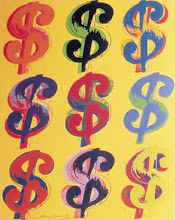All directly social or communal labour on a large scare requires, to a greater or lesser degree, a directing authority, in order to secure the harmonious co-operation of the activities of individuals, and to perform the general functions that have their origin in the motion of the total productive organism, as distinguished from the motions of separate organs. A single violin (end p. 448) player is his own conductor: an orchestra requires a separate one. The work of directing, superintending and adjusting becomes one of the function of capital, from the moment that the labour under capital's control becomes co-operative. As a specific function of capital, the directing function acquires its own characteristics." (Fowkes Translation, Vintage Books Edition, 1977, pp. 448-449)
The substitution of cooperative labor/capitalist command and orchestra/conductor provides, I hope, an interesting way to return to questions I have been working on concerning rhetorical agency and communicative labor as well as the social dimensions of argumentation and cognitive capitalism. It will also allow me to think a bit more critically about the St. Paul Orchestra lockout, the on-going lockout of the Minnesota Orchestra, and what Toby Miller and friends call "the new international division of cultural labor." Of course, I am just beginning, and who knows where this passage may take me. In the meantime, if you have tips along the way, please share. And, or course, if you have insights about the chapter and the passage, i am all ears.
To start us off, is the orator (rhetorician, however u imagine him/her/it) ever like the sole violin player? My gut would tell me no for the simple reason that there is no oratory without an interface between the material assemblage of a rhetorical situation: speakers, audiences, discourses, technologies, effects (to slightly adjust McGee's molecular model). Raising the question: who or what is the conductor? Is it possible the rhetorical situation requires, like the orchestra, a separate conductor, a conductor out of the line of sight provided by the molecular model of the rhetorical situation?




No comments:
Post a Comment